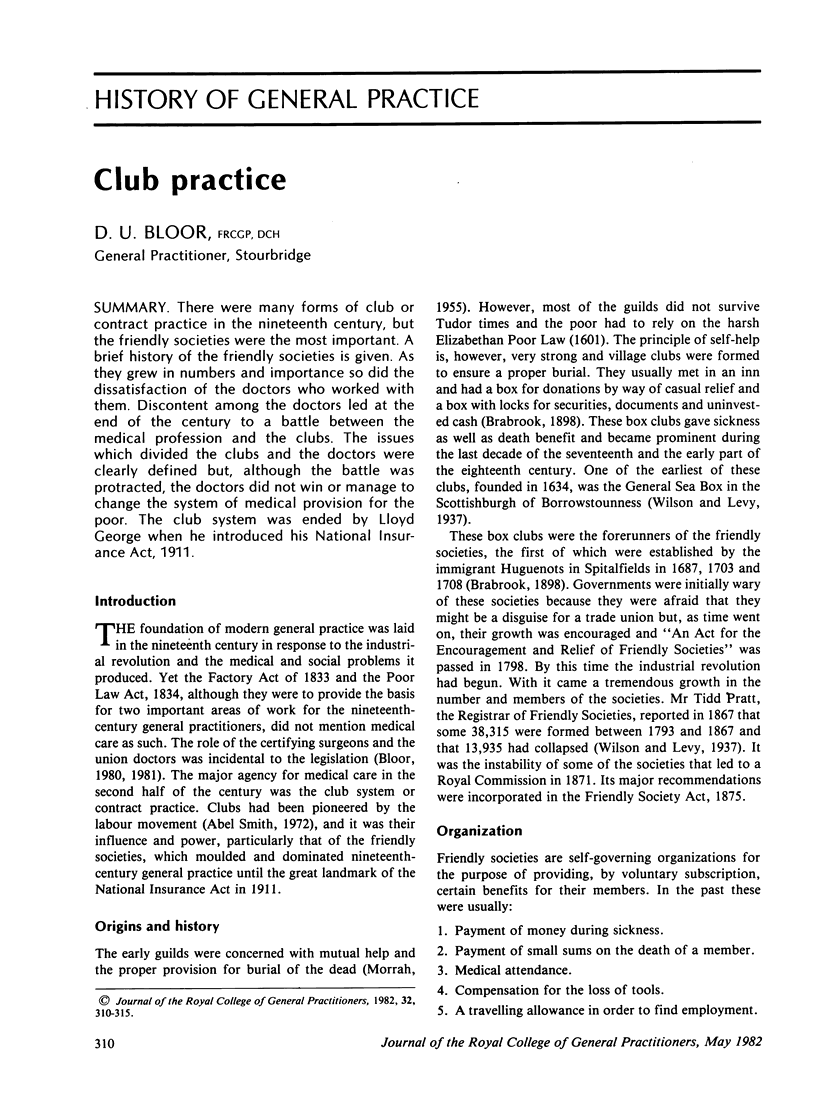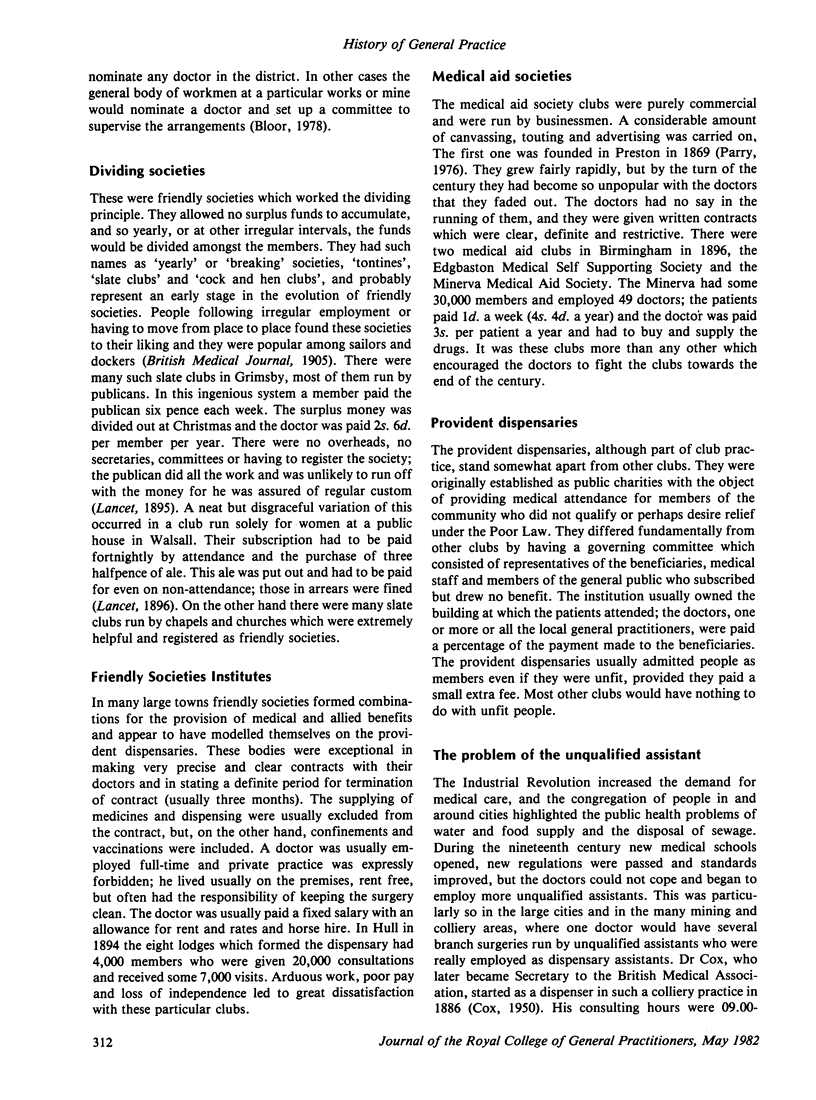Abstract
There were many forms of club or contract practice in the nineteenth century, but the friendly societies were the most important. A brief history of the friendly societies is given. As they grew in numbers and importance so did the dissatisfaction of the doctors who worked with them. Discontent among the doctors led at the end of the century to a battle between the medical profession and the clubs. The issues which divided the clubs and the doctors were clearly defined but, although the battle was protracted, the doctors did not win or manage to change the system of medical provision for the poor. The club system was ended by Lloyd George when he introduced his National Insurance Act, 1911.
Full text
PDF





Selected References
These references are in PubMed. This may not be the complete list of references from this article.
- Bloor D. U. Richard Quiller Couch--an outstanding nineteenth century general practitioner. J R Coll Gen Pract. 1978 Feb;28(187):97–101. [PMC free article] [PubMed] [Google Scholar]
- Bloor D. U. The certifying surgeons. J R Coll Gen Pract. 1981 Jan;31(222):33–37. [PMC free article] [PubMed] [Google Scholar]
- Bloor D. U. The union doctor. J R Coll Gen Pract. 1980 Jun;30(215):358–364. [PMC free article] [PubMed] [Google Scholar]



